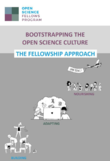Collections
Successful management, exchange and interpretation of an ever-growing tsunami of digital information and knowledge will depend on highly automated methods dealing with combined data. This will require artificial intelligence but also robust and informative ways to store and disseminate data and meta ...
This collection hosts outputs from the FP7-funded EU project Building the European Biodiversity Observation Network (EU BON). The project proposes an innovative approach in terms of integration of biodiversity information systems from on-ground to remote sensing data, for addressing policy and infor ...
This research project was an Open Data pilot based on case studies with seven IDRC grantees who developed and implemented open data management and sharing plans. The case studies examined the scale of legal, ethical and technical challenges that limited the sharing of data from IDRC projects includi ...




